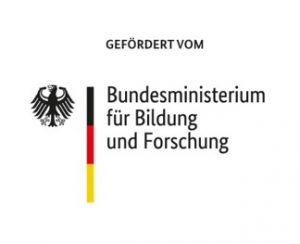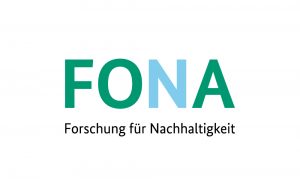The design of a climate just city requires an integrated urban development and infrastructure planning. The Resilient netWORKS project (“Contributions to Urban Supply Systems for Climate Justice”), in brief. NETworks$; aims at initiating a comprehensive discussion on the future design of urban water infrastructures. In the scope of a geared transformation management for specific urban transformation areas, definite implementation measures will be designed and advanced in cooperation with municipal policy makers. To this end, grey, green and blue infrastructures (technical infrastructure, green urban areas and water bodies) will be taken into consideration. Their clever interconnection will generate a potential of synergies leading to improved climate resilience of the according schemes. Intense precipitation or longer dry periods are representative examples for the climate impacts to be coped with.
Together with the cities of Berlin and Norderstedt suitable approaches to the future water infrastructure design will be developed and verified. Parallel modelling and the accompanying reflection and synthesis will illustrate the impacts and consequences for the urban land-use planning. The resulting suggestions for a reasonable adjustment of planning processes and for the improved cooperation between the stakeholders will be tested and reviewed within the respective transformation areas.
The project explicitly aims to develop suitable options for action and recommendations which will contribute to enhance the level of climate justice.
Kompetenzzentrum Wasser Berlin is responsible for the work package „Scientific-Technical Assessment”. One objective is to simplify the assessment methods of stormwater management strategies developed in the BMBF-funded project KURAS and to verify their advancement by a quantitative resilience analysis. In addition, KWB will contribute to concrete planning activities to be performed at Berlin sites (by Berliner Wasserbetriebe, supported by the Berlin Senate Administration for Urban Development and the Environment) in terms of measure selection and assessment.
When embedding this video, cookies from third parties may be set. You must agree to this if you want to watch the video. You can change your decision later in the privacy settings.
When embedding this video, cookies from third parties may be set. You must agree to this if you want to watch the video. You can change your decision later in the privacy settings.




- Quantitative Beschreibung der Resilienz urbaner Wassersysteme
- Überflutungskarten anhand von Social Media Daten - Erhebung, Auswertung und Validierung am Beispiel von zwei Starkregenereignissen in Berlin
- Resilience of urban drainage systems - Proposition of a quantitative approach
- Potenziale grau-grün-blau gekoppelter Wasserinfrastrukturen für die Gestaltung zukunftsfähiger und klimagerechter Städte - Ergebnisse eines strategischen Planungsprozesses in einem Pilotquartier
- Potenzial von Bilddaten aus sozialen Medien für die urbane Überflutungsvorsorge - Versuch einer Anwendung für zwei extreme Starkregenereignisse in Berlin.



